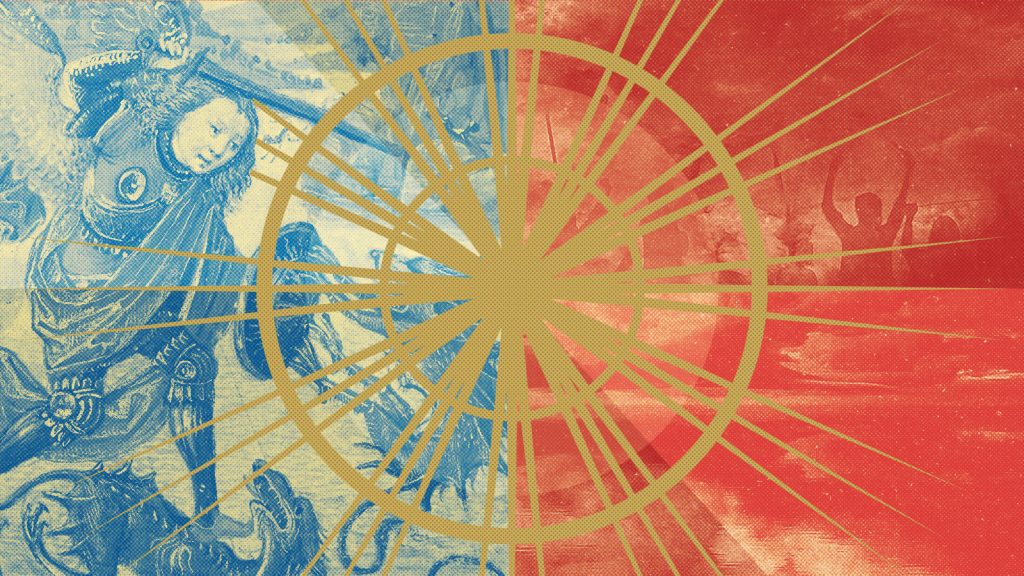In these bizarre and troubled times, people feel forsaken.
As a mediator and peacemaker, I often become acutely aware of people’s distress, despair, and their faith challenges. In these times of social and political turmoil, many individuals, silently, in their minds, turn toward heaven, shake a fist, and cry out, “Why have you forsaken us?”
Perhaps you’ve witnessed such laments. And, as worldly conflict escalates catastrophically, you turn to prayer with heightened urgency. Meanwhile, dreams of hastening the arrival of the “peace of Christ” are drowned out by the clatter of warring factions.
Optimism in the Shadows
Not too long ago, I nurtured a confident view: “Don’t worry, we’ve got this.” That triumphalist viewpoint is now being challenged daily. The future has grown less certain.
In contrast to my recent confidence, today I worry that evil will trample good. Perhaps you, too, worry that the time to make a stand against total ruin has come and gone. Perhaps stare somewhat hopelessly at the widening spiritual chasm whose darkness threatens to swallow Mankind.
Frequently, I wonder, “Are robust peacemaking strategies sufficiently powerful to neuter demonic impulses aimed at destroying this world? Or are we too late? Did we move too slowly?”
Or will steely intention and lightning speed make a difference? Can we calm the winds of destruction ripping apart the human landscape like a tornado? Certainly we must try.
So, if you grasp the urgency of this moment in history and if you share my passion for peacemaking, you will want to subscribe to Divine Collaboration, which is…
A New Protocol
Divine Collaboration is a comprehensive new peacemaking protocol. Its essence is a much deeper assessment of participant needs and interests.
During standard collaborative mediation, peacemakers assess conflicting interests that must be satisfied to resolve the dispute. Divine Collaboration goes further. Participants’ interests are assessed against a common baseline: THE WILL OF GOD.
Typically, we value our interests in a relativistic manner. We do not anchor value to a baseline; values are not tied to a universal Reality. Rather, our sense of what has worth “floats” during a negotiation.
In Divine Collaboration, the common relativistic value-setting method is replaced with a protocol that asks participants to view their conflict from a divine perspective: “How does God see this fight?”
A search for a cogent expression of God’s interests ensues, followed by disputants comparing their interests with God’s interests, which form the baseline Will of God. This is the ultimate Reality Check.
This approach—reconciling the relationship with God at the same time one mends relationships with “brothers and sisters”—shines greater light on the true nature of the conflict, resulting in a deeper and more enduring peace.
The process becomes…
The Work of Spiritual Warriors.
Peacemaking frequently bears a resemblance to “fighting a war.” Enemies of peace—principalities, powers, and rulers of darkness—sow division, generate chaos, and promote death. They’re passionate about spreading fear and uncertainty. They’re not about to give up without a fight.
For this reason, a peacemaker’s response must be more about conquering evil than about preaching tolerant compromise. Ironically, peacemaking demands we “learn to fight better.”
Ultimately, Divine Collaboration is the work of spiritual warriors. Thus, if you aspire to become a spiritual warrior, learning to facilitate Divine Collaboration might be a good first step.
In preparation, you will want to create a…
War Chest and Arsenal
Divine Collaboration will provide readers with the resources needed to build personal spiritual “war chests,” arsenals of spiritual tools needed to defeat evil.
We’ll draw upon principles and practices of Faith as we compile spiritual warfare toolkits. Concepts from Applied Theology will be introduced to accompany techniques borrowed from the Peacemaking discipline. The role of the Holy Spirit in peacemaking will be explored.
Journey Into Peace
You’re invited to send comments and suggestions by contacting us. Help us develop this new protocol. Journey with us on the path to peace.
